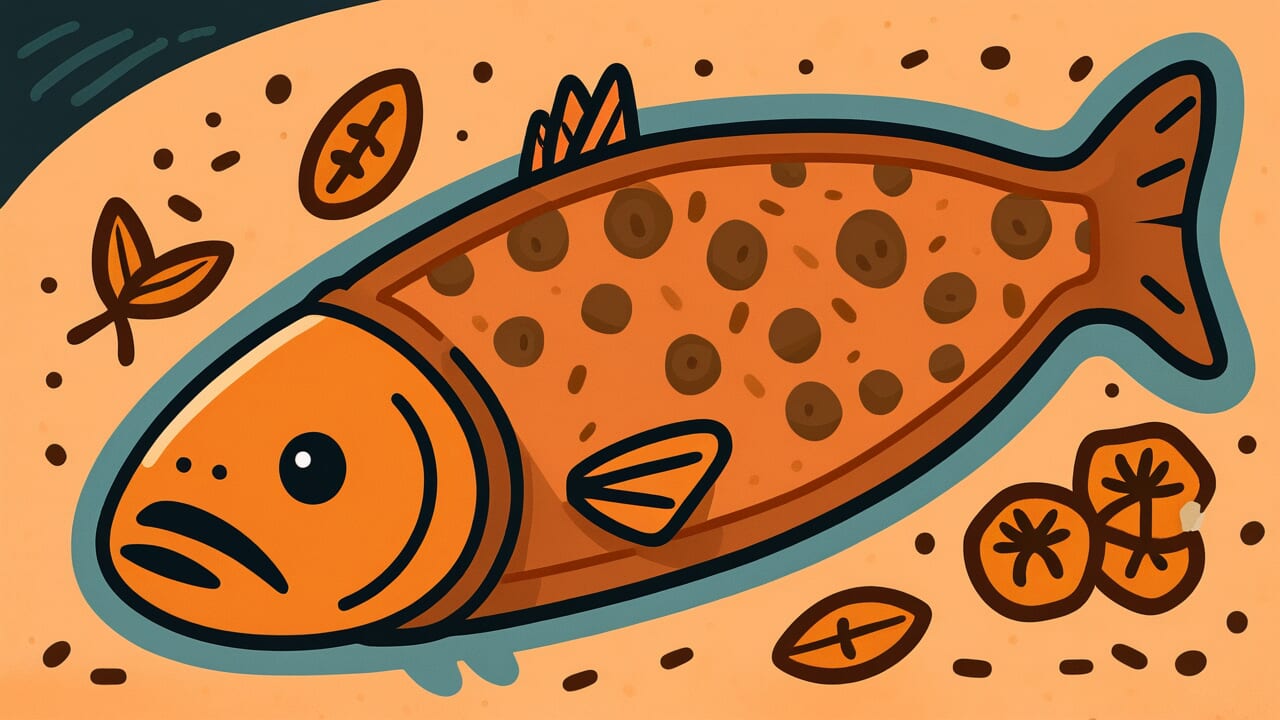How to Read “When meat rots it breeds worms, when fish dries it breeds bugs”
Niku wa kusareba mushi wo shōji, uo wa karureba to wo shōzu
Meaning of “When meat rots it breeds worms, when fish dries it breeds bugs”
This proverb teaches that when things decay or decline, harmful forces always appear to take advantage.
Just as worms appear in rotting meat and bugs infest dried fish, the same happens in organizations, nations, and personal lives.
When weakness or corruption begins, people emerge who exploit the situation for personal gain or make things even worse.
This expression applies when dishonest people appear in a struggling company. It describes opportunists who emerge during political chaos.
It also warns that when personal discipline weakens, bad influences and relationships will follow.
Today, people use this proverb to explain why good governance matters. It reminds us that maintaining healthy conditions from the start prevents bigger problems later.
Origin and Etymology
Multiple theories exist about the exact origin of this proverb. Scholars believe it comes from ancient Chinese philosophical thought.
It likely emerged from teachings about cause and effect and natural laws.
The structure uses contrasting pairs: “meat” versus “fish,” and “rots” versus “dries.” This parallel construction is common in classical Chinese literature.
After arriving in Japan, this rhetorical style became established as a memorable saying.
The character “蠹 (to)” is an old word meaning bugs that eat books or wood. People rarely use it today, but it once referred to harmful insects in general.
The observation that ordinary worms infest meat while “to” specifically attack fish reflects people’s lived experience in those times.
This expression shows more than just natural observation. It demonstrates a law of cause and effect.
Decay and decline inevitably attract harmful elements. By using the familiar example of food spoilage, the proverb teaches abstract social principles.
This wisdom has been passed down through generations as a concrete way to understand how society works.
Interesting Facts
The character “蠹 (to)” originally meant “wood-boring insects.” In ancient China, books were written on wooden or bamboo strips.
These bugs were feared as enemies that destroyed precious documents. The meaning expanded to describe anything that corrupts from within.
“A to of the nation” came to mean a corrupt official who feeds off the state.
The cause-and-effect relationship in this proverb is scientifically accurate. Decaying organic matter releases specific chemicals during decomposition.
Flies and other insects detect these chemical signals with great sensitivity. They gather not by chance but because decay inevitably attracts them.
The appearance of bugs is a necessary result of the rotting state itself.
Usage Examples
- After that company’s management declined, scandals kept emerging one after another. It’s exactly “when meat rots it breeds worms, when fish dries it breeds bugs.”
- When a government weakens, people appear who seek to profit from it. This proves the saying “when meat rots it breeds worms, when fish dries it breeds bugs.”
Universal Wisdom
This proverb teaches us about the magnetic quality of decline and decay.
Harmful forces that healthy conditions kept away suddenly gather once weakness appears. They seem almost summoned by vulnerability.
This is both a harsh truth of human society and a law of nature.
Why does this happen? Weakened states create perfect opportunities for those seeking profit.
Healthy organizations have strict discipline that leaves no room for wrongdoing. But when control loosens and oversight fails, human desires that were previously suppressed burst forth all at once.
Looking deeper, this proverb emphasizes prevention. Don’t wait to deal with worms after they appear.
The key is not letting things rot in the first place. This principle applies equally to personal life and organizational management.
Humans can be cruelly cold toward those who show weakness. Some don’t help but instead exploit that weakness.
By facing this harsh reality, we learn the importance of self-management. We understand why maintaining healthy conditions through daily effort matters.
Our ancestors saw through this unavoidable aspect of human nature. They left this warning for future generations.
When AI Hears This
The phenomenon of rotting meat and fish is actually a miniature version of laws governing the entire universe.
The second law of thermodynamics states that entropy, or disorder, always increases in closed systems. In other words, organized states inevitably fall apart if left alone.
While alive, meat and fish tissues maintain orderly cell arrangements and complex protein structures. This is a state that resists entropy increase through energy input from life activities.
But the moment death occurs, this energy supply stops. Thermodynamic laws begin working mercilessly.
Complex structures break down into simple molecules. Insects and microorganisms accelerate this process by converting large molecules into small ones, increasing entropy.
What’s fascinating is that every method of preventing decay involves “energy input.” Refrigeration continuously removes heat.
Salting uses energy in the form of osmotic pressure. Vacuum packing blocks oxygen, depriving microorganisms of energy for activity.
Maintaining order always costs something. This proverb brilliantly captures a fundamental law of the universe through everyday decay.
Human relationships, organizations, and technology all deteriorate if neglected. Maintenance requires constant effort.
Physical laws confirm this truth.
Lessons for Today
This proverb teaches modern people that small daily efforts prevent major crises.
In companies, homes, and personal lives, ignoring small problems because things seem “still okay” can lead to irreversible situations before you realize it.
What matters most is staying alert during good times. Don’t panic after problems arise.
Instead, create an environment where problems don’t occur in the first place. This may seem troublesome, but it’s ultimately the most efficient approach.
Look around you. Check workplace discipline, household finances, health habits, and relationships.
Do you see small cracks? Repairing those cracks now protects your future self.
You don’t need perfection. What matters is maintaining an attitude of trying to stay healthy.
This proverb teaches harsh reality but also offers hope. That hope is our power to prevent problems.
Through daily choices and efforts, we can develop strength that keeps harm away.



Comments